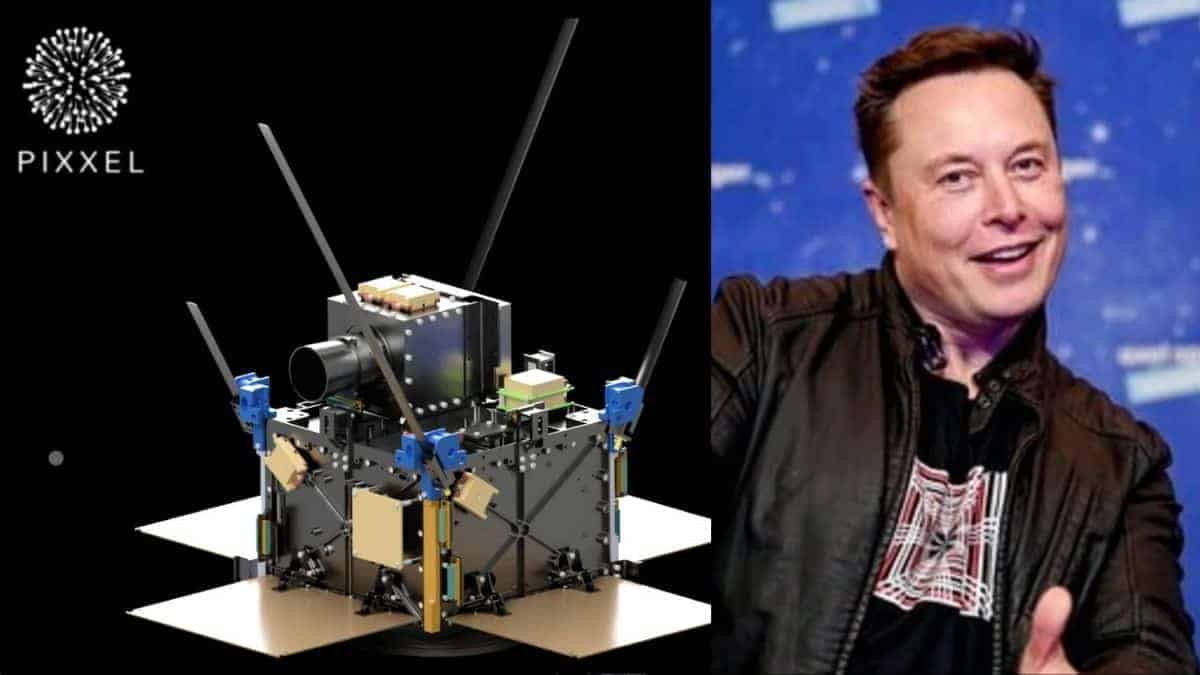Pixxel, a spacetech business, has partnered with SpaceX to launch India’s first private commercial imaging satellite
The satellite will give coverage for datasets that will allow real-time monitoring and prediction of global events.

Pixxel, a Bengaluru-based space technology company, said on April 1 that its first fully-fledged commercial satellite, Shakuntala (Technology Demonstrator-2), had been launched successfully using a SpaceX Falcon-9 rocket.
According to an official statement, Pixxel’s first full-fledged satellite, Shakuntala, is home to one of the highest-resolution hyperspectral commercial cameras ever put into space, bringing the company one step closer to building a 24-hour global health monitor.
This launch, which took place from Cape Canaveral, Florida, aboard SpaceX’s Transporter-4 mission, brings Pixxel closer to its objective of creating one of the world’s most advanced constellations of low-earth-orbit imaging satellites, according to the company.
This launch is also a big step forward in India’s goal of strengthening domestic and international private engagement. Pixxel is the first Indian business to send commercial technology into space, clearing the way for India’s space-tech boom.
Shakuntala (TD-2) is a small satellite capable of capturing orbital photographs in more than 150 colour bands from the visible and infrared spectrum with a resolution of 10-meters per pixel, much above the specificity of NASA, ESA, and ISRO’s 30-meter per pixel hyperspectral spacecraft.
Just weeks after launch, TD-2 will begin gathering data and identifying the world’s invisible changes, such as natural gas leakages, deforestation, melting ice caps, pollution, and poor crop health, according to the announcement.
“From being one of the few finalists in the SpaceX Hyperloop Pod Competition in 2017 to now launching our own satellites as part of SpaceX’s fourth dedicated rideshare mission, life has gone full circle for us,” Pixxel CEO Awais Ahmed remarked. Even today, our objective of bringing the benefits of space back to Earth while also making our world a more dynamic and sustainable environment remains steadfast.”
Shakuntala’s launch is the first step toward making space exploration easier and achieving our goal of building a constellation capable of delivering daily worldwide coverage,” he added.
Pixxel just raised $25 million in Series A funding from a number of investors, including Radical Ventures, Seraphim Space Capital, Relativity Space co-founder Jordan Noone, Lightspeed Partners, Blume Ventures, and Sparta LLC. Over 50 customers from a variety of industries have signed pre-launch agreements with them, including agricultural, oil and gas, mining, and the climate sector.
“This launch paves the way for the launch of Pixxel’s first commercial phase satellites in early 2023, as well as the commercial selling of our data,” Ahmed remarked. “Pixel’s hyperspectral constellation will be able to cover any place on the world every 48 hours, thanks to six satellites flying in a sun-synchronous orbit (SSO) around a 550 km altitude.”


